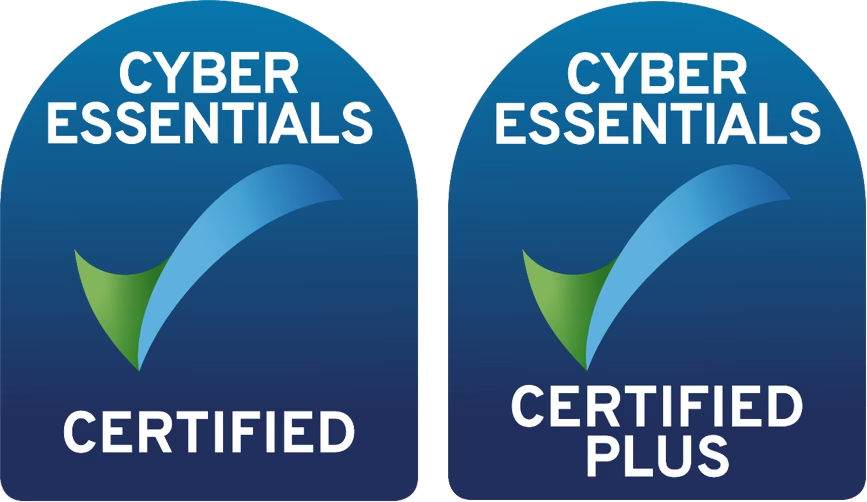IT Security Best Practices for Remote Workers
The COVID-19 pandemic has forced many businesses to adopt remote work arrangements. While this has been a necessary step to protect the health and safety of employees, it has also created new security challenges.
Cybercriminals are increasingly targeting remote workers, as they are often more vulnerable to attack. In order to thrive in a remote world, businesses need to implement strong IT security practices.
Here are five essential IT security practices that businesses need to implement in order to protect themselves from cyberattacks:
Implement strong password security. This means using unique, strong passwords for all accounts, and never reusing passwords.
Use multi-factor authentication. This adds an extra layer of security by requiring users to provide two forms of identification, such as a password and a code sent to their phone, before they can log in.
Keep software up to date. Software updates often include security patches that can help to protect against known vulnerabilities.
Educate employees on security best practices. Employees should be trained on how to identify and avoid phishing scams, as well as how to protect their devices from malware.
Implement a security incident response plan. This plan should outline how the business will respond to a security incident, such as a data breach or a ransomware attack.
By following these five essential IT security practices, businesses can help to protect themselves from cyberattacks and thrive in a remote world.
How will a security solution aid your organization and your Remote Workers?
Protect your data. A security solution can help to protect your organization’s data from unauthorized access, use, disclosure, disruption, modification, or destruction.
Reduce risk. A security solution can help to reduce your organization’s risk of a cyberattack. By implementing security controls, you can make it more difficult for cybercriminals to gain access to your systems and data.
Improve compliance. A security solution can help you to comply with industry regulations and government mandates. By implementing security controls, you can demonstrate that you are taking steps to protect your organization’s data and systems.
Save money. A security solution can help you to save money in the long run by preventing costly cyberattacks. By implementing security controls, you can avoid the costs of data breaches, ransomware attacks, and other cyberattacks.

The importance of security awareness training for Remote Workers
Employees are the weakest link in the security chain. They are often the targets of phishing attacks and other social engineering schemes.
Security awareness training can help employees to identify and avoid these threats. It can also teach them about other security best practices, such as strong password security and the importance of keeping software up to date.
Security awareness training is an essential part of any comprehensive security strategy. It can help to protect your organization from cyberattacks and keep your data safe.
The importance of a security incident response plan for Remote Workers
A security incident response plan is a document that outlines how your organization will respond to a security incident. It should include steps for identifying, containing, and mitigating the incident, as well as steps for communicating with affected parties.
Having a security incident response plan in place can help you to minimize the impact of a cyberattack. It can also help to protect your organization’s reputation and avoid legal liability.
It is important to regularly review and update your security incident response plan to ensure that it is up-to-date and reflects the current state of your organization’s security posture.
The importance of security monitoring for Remote Workers
Security monitoring is the process of collecting and analyzing data from your organization’s IT systems to identify potential security threats. This data can include things like network traffic, user behavior, and system logs.
Security monitoring can help you to detect security incidents early, before they cause significant damage. It can also help you to identify and respond to threats that are not yet known to your organization.
There are many security monitoring tools and services available, each with its own strengths and weaknesses. The best tool or service for your organization will depend on your specific needs and budget. We can help you evaluate your needs and recommend the best tools available to your business.
The importance of security testing
Security testing is the process of evaluating your organization’s security posture to identify vulnerabilities. This can be done through a variety of methods, such as penetration testing, vulnerability scanning, and security audits.
Security testing can help you to identify and fix vulnerabilities before they can be exploited by cybercriminals. It can also help you to improve your organization’s security posture overall.
There are a variety of security testing tools and services available. The best tool or service for your organization will depend on your specific needs and budget.
Types of Security Testing
There are three main types of security testing:
Penetration testing: Penetration testing is a type of security testing in which an ethical hacker attempts to exploit vulnerabilities in your organization’s systems and networks. This type of testing can help you to identify and fix vulnerabilities that could be exploited by cybercriminals.
Vulnerability scanning: Vulnerability scanning is a type of security testing in which a tool is used to scan your organization’s systems and networks for known vulnerabilities. This type of testing can help you to identify vulnerabilities that need to be fixed.
Security audits: Security audits are a type of security testing in which a security professional reviews your organization’s security policies and procedures to identify areas that need improvement. This type of testing can help you to improve your organization’s overall security posture.

Benefits of Security Testing
There are many benefits to security testing, including:
Identifying and fixing vulnerabilities: Security testing can help you to identify and fix vulnerabilities in your organization’s systems and networks. This can help to protect your organization from cyberattacks.
Improving your security posture: Security testing can help you to improve your organization’s overall security posture. This can make it more difficult for cybercriminals to attack your organization.
Meeting compliance requirements: Many organizations are required to comply with industry regulations and government mandates. Security testing can help you to demonstrate that you are taking steps to comply with these requirements.
Reducing risk: Security testing can help you to reduce the risk of a cyberattack. This can save your organization money in the long run by preventing costly data breaches and other cyberattacks.
Security testing is an important part of any organization’s security program. By conducting regular security testing, you can help to identify and fix vulnerabilities, improve your security posture, and meet compliance requirements.
If you’re worried about your business’s security posture, don’t hesitate to contact one of our experts.
We can help you assess your current security posture and identify areas where you can improve.
We can also help you implement security solutions that meet your specific needs and budget.
Contact us today to learn more about our IT security services.
Contact us to Schedule your Free Consultation!
With over 15 years at Speedster IT, I’ve built a career around helping businesses navigate the evolving world of technology. I publish all the content for the IT Support London Blog and Cyber Security Blog, where I share practical insights on infrastructure upgrades, cybersecurity trends, and smart IT strategies for growing companies.
